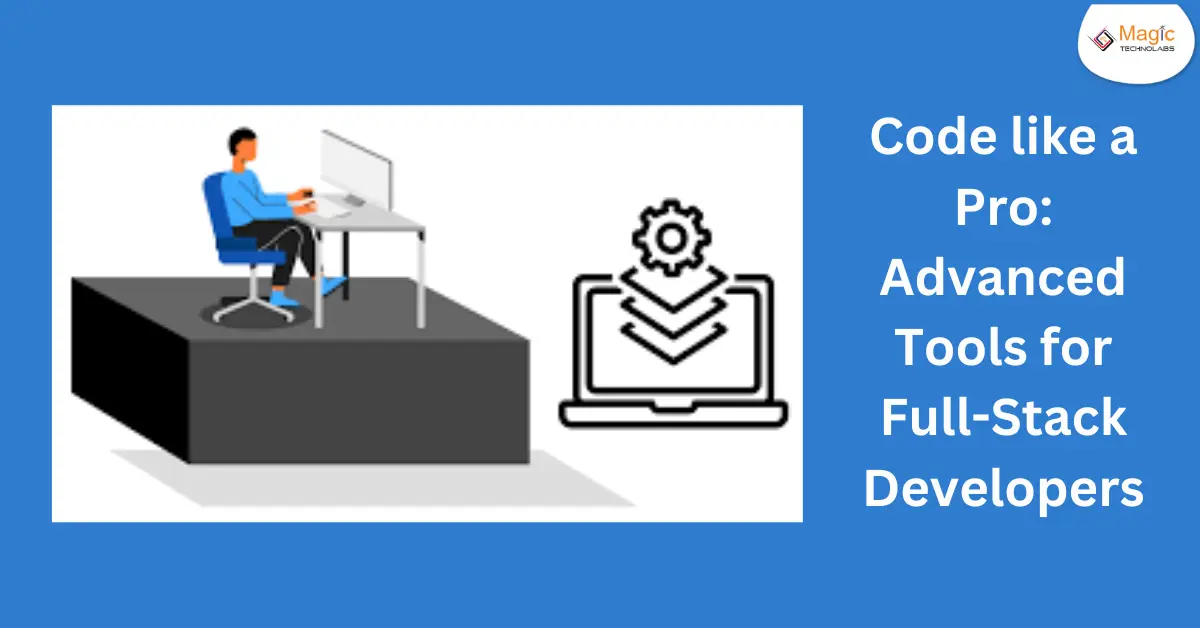Becoming a proficient full-stack developer involves mastering a diverse set of tools and technologies that streamline the development process and enhance productivity. Here are some advanced tools that can help you code like a pro:
1. Integrated Development Environments (IDEs): IDEs such as Visual Studio Code, PyCharm, and IntelliJ IDEA provide powerful features like code completion, syntax highlighting, and debugging tools that streamline coding across multiple languages and frameworks
2. Version Control Systems (VCS): Git is a fundamental tool for version control, allowing developers to track changes, collaborate with team members, and manage code repositories efficiently. Platforms like GitHub and GitLab provide additional features for code hosting and collaboration.
3. Containerization and Orchestration: Docker and Kubernetes are essential tools for building, deploying, and managing containerized applications. Containerization enables consistency and portability across different environments, while orchestration platforms automate deployment and scaling.
4. Continuous Integration/Continuous Deployment (CI/CD): CI/CD pipelines automate the process of building, testing, and deploying code changes, enabling faster and more reliable software delivery. Tools like Jenkins, CircleCI, and Travis CI facilitate CI/CD workflows and integration with version control systems.
5. API Development and Testing: Tools like Postman and Insomnia simplify API development and testing by providing intuitive interfaces for building and sending requests, inspecting responses, and debugging API endpoints. These tools are invaluable for building and consuming RESTful APIs in full-stack development projects.
6. Performance Monitoring and Debugging: Tools like New Relic, Datadog, and Sentry help developers monitor application performance, identify bottlenecks, and debug issues in real-time. These tools provide insights into application behavior, resource utilization, and error tracking to optimize performance and reliability.
7. Frontend Frameworks and Libraries: Full-stack developers often work with frontend frameworks and libraries such as React, Angular, and Vue.js to build responsive and interactive user interfaces. These tools offer reusable components, state management, and routing capabilities that streamline frontend development.
8. Database Management Systems (DBMS): DBMS tools like PostgreSQL, MySQL, and MongoDB are essential for storing, retrieving, and manipulating data in full-stack applications. Understanding database design principles and querying languages is crucial for efficient data management.
By leveraging these advanced tools and technologies, full-stack developers can enhance their productivity, streamline their workflow, and deliver high-quality software solutions efficiently. Experiment with different tools, stay updated with industry trends, and continuously expand your skill set to code like a pro in today's competitive development landscape.
















